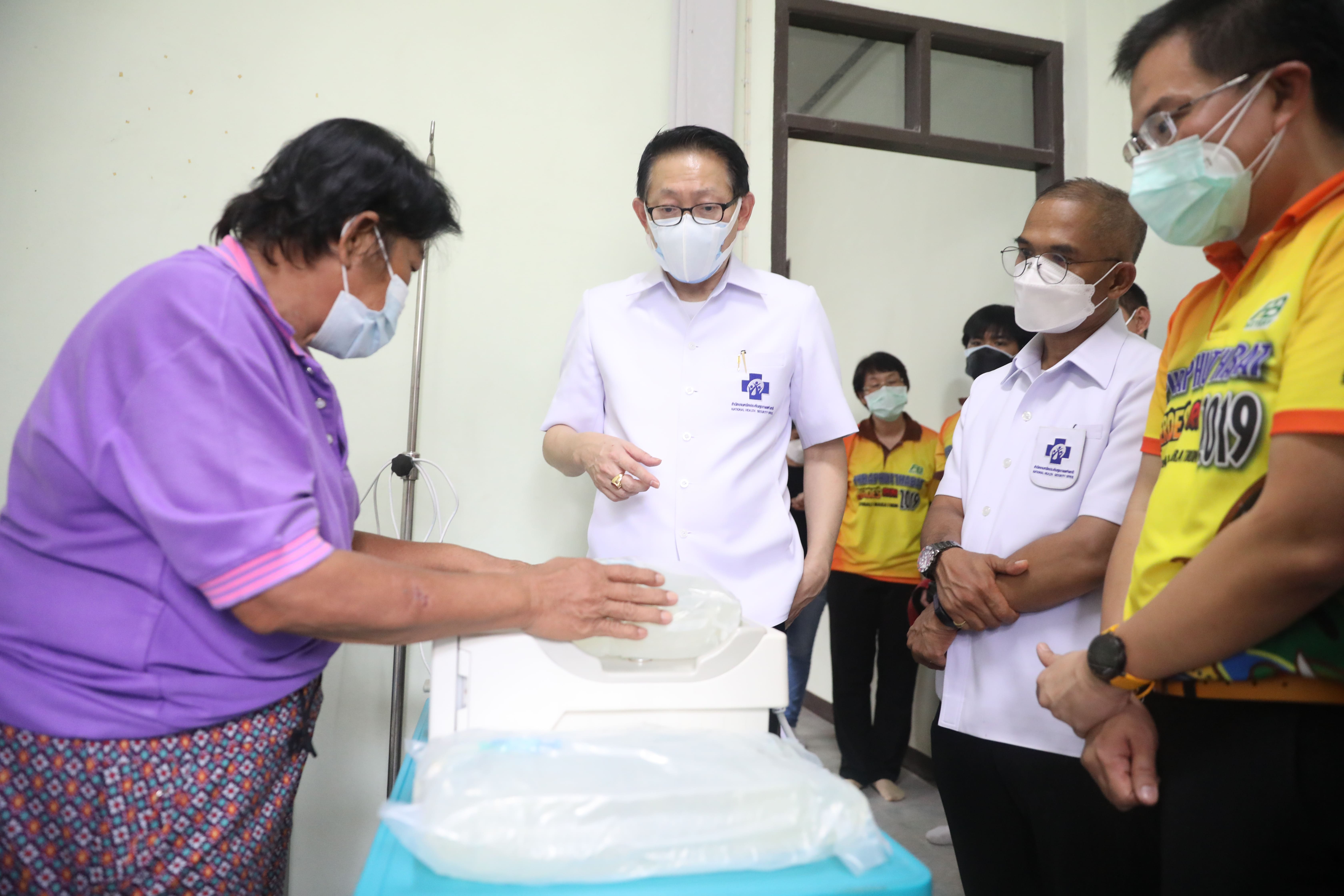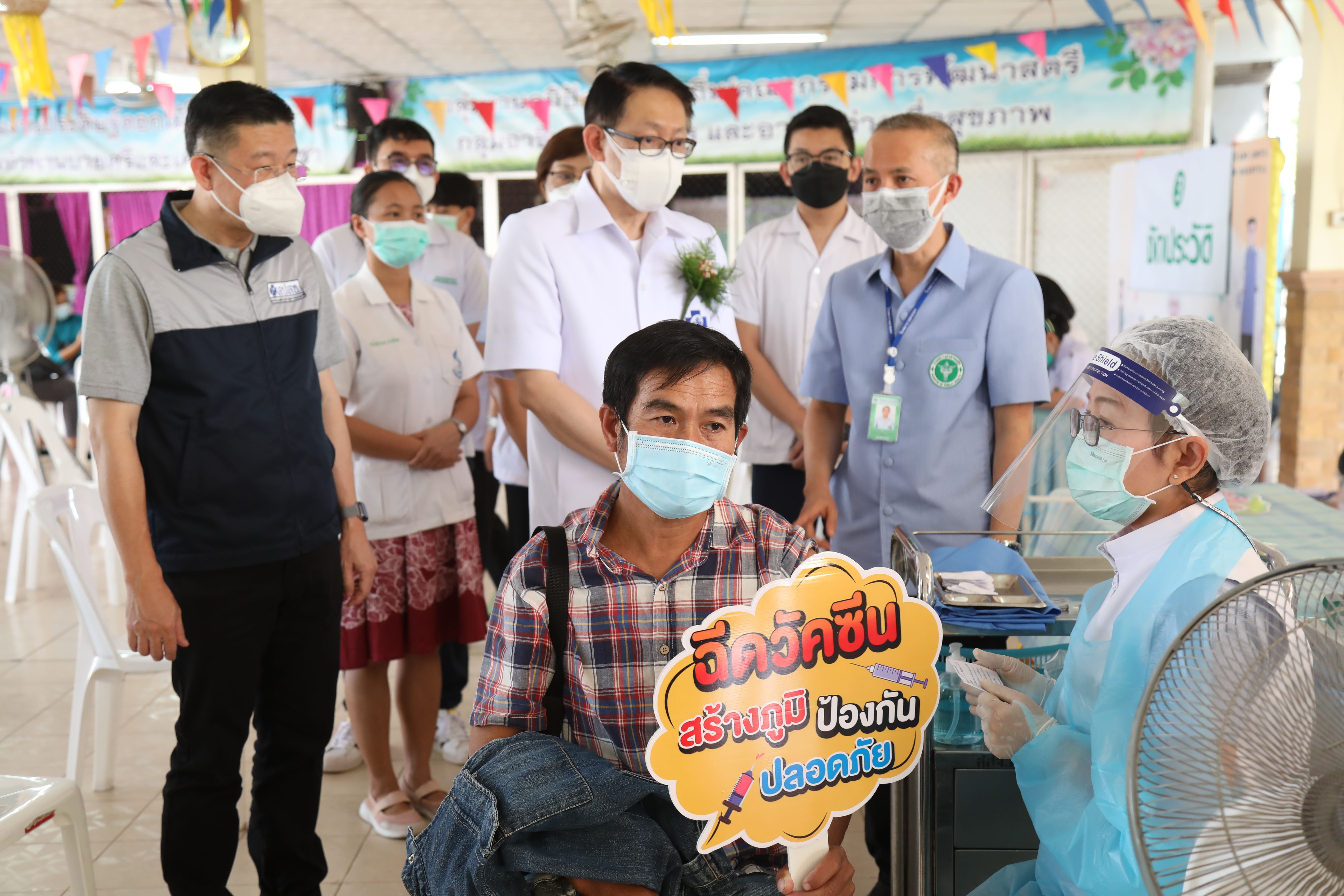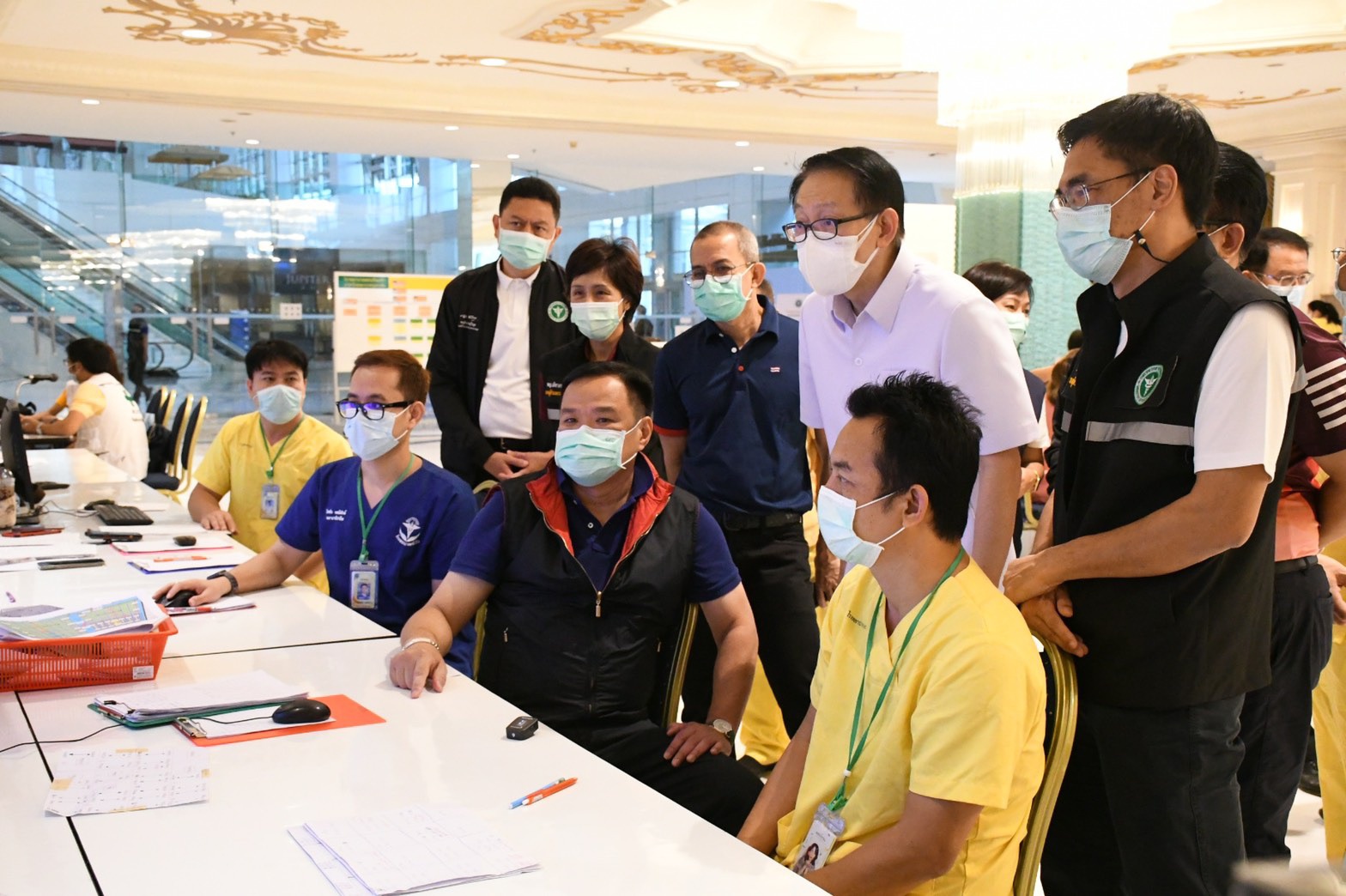
- Home
- DescriptionNews
Thais' healthcare access improved: the NHSO annual report

Thais' healthcare access improved: the NHSO annual report
Nearly 48 million Thais could access essential healthcare services and COVID-19 treatment, according to the National Health Security Office (NHSO) 's 2021 annual report issued this month.
Around 47.74 million Thais are beneficiaries of the Universal Coverage Scheme (UCS), the government's healthcare scheme managed by the NHSO.
Last year, the NHSO obtained 194.5 billion baht from the Thai government.

The fund was used on improving UCS beneficiaries' access to health services, health promotion and disease prevention activities, and physical rehabilitation.
The NHSO was assigned to manage the government's funding for the coronavirus emergency response programs, which cover the Thai population regardless of their registered healthcare schemes.
The official record showed 161.71 million visits to the outpatient department throughout 2021 or 3.44 visits per UCS beneficiary.
More than 5.76 million visits to the inpatient department or 0.12 visits per person.
Around 22,654 cases of one-day surgery was reported. Minimally invasive surgery and extracorporeal shock wave lithotripsy were operated 8,556 and 17,229 times, respectively.
These are outstanding numbers in the official record, including:
3,644 patients with acute coronary syndrome received clot-buster drugs.
6,808 patients with ischemic stroke were treated with clot-buster drugs.
93,945 patients went through cataract surgeries.
517 patients received corneal transplantations.
107 people got stem cell transplantation.
12,014 patients with the most severe type of thalassemia had access to treatment.
81,719 patients with tuberculosis were treated.
45,502 patients received palliative care.
52,065 patients had access to orphan drugs.
6,276 patients got antidotes.

The NHSO has managed the funds for treating people with high-cost and chronic diseases, including HIV/AIDS, kidney failure, and cancer.
The funds covered healthcare for: 289,116 AIDS patients.
69,208 patients with final-stage kidney failure.
4 million patients living with diabetes and hypertension.
10,341 patients living with mental health problems.
186,284 bed-ridden patients (covering beneficiaries of UCS, Social Security Scheme, and Civil Servant Medical Benefits).
Care under social distance measures, including telemedicine, medicine delivered to patients via postal services, and the NHSO's partnered pharmacies.
These services combined were provided to people 2.9 million times.
In 2021, the NHSO introduced new policies for increasing people's access to healthcare.
They included:
UCS beneficiaries could request healthcare services at any hospital regardless of their registry hospitals (950,176 visits)
An inter-hospital patient transfer without paperwork, piloting in the health region 9th and 13th (400,000 transfers)
Cancer patients could request healthcare services at any hospital regardless of their registry hospitals (1.27 million visits)
UCS beneficiaries could change their registry hospital within a day (1.29 million requests, 264,636 requests were granted immediately after the request submissions)
In addition, the NHSO received 30-billion-baht funding from the government’s emergency loan for responding to the pandemic, which covered:

COVID-19 testing, tracing and treating.
The coronavirus outpatient and inpatient care provided in hospitals, field hospitals, hospitels, home and community isolation programs.
Medicine.
Hospital's quarantine wards and personal protective equipment for health workers.
Transports for transferring COVID-19 patients.
Non-fault compensation for COVID-19 vaccine recipients.
The expansion of the NHSO 1330 contact center and online communication channels to assist people who tested coronavirus positive.
Collaboration with civil society networks to monitor and care for COVID-19 patients.
Read the NHSO's full annual report here:
Website, https://www.nhso.go.th/operating_results/50
YouTube, https://youtu.be/rXntM7S38ao
E-book, https://stream.nhso.go.th/assets/portals/1/ebookcategory/162_NHSO-Annual-Report-2021/NHSO-Annual-Report-2021/#page=1

